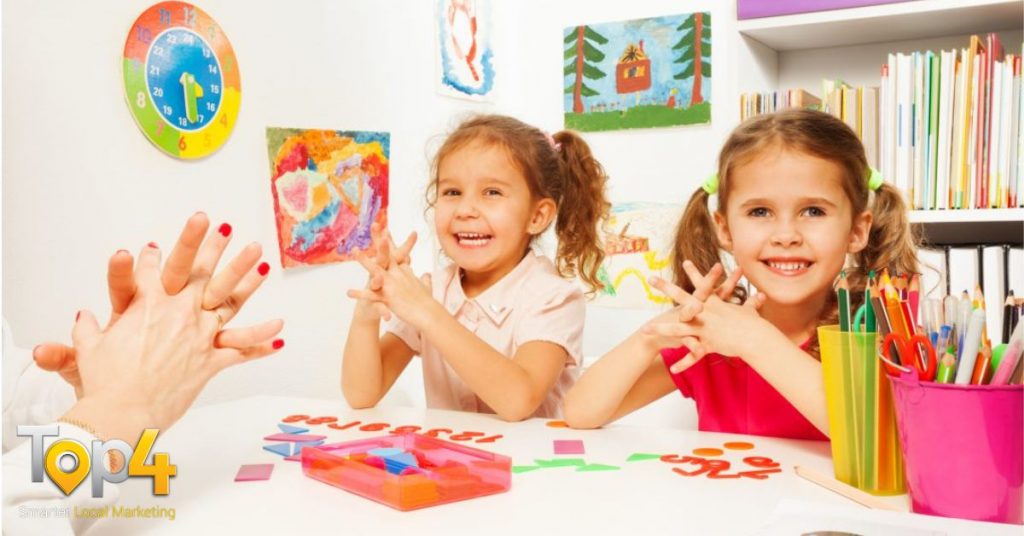Play is a platform for future well-being and Children’s Cognitive Development
Children learn more in their early years of development than at any other stage of their life. Play, a primary occupation in the early years is a foundation or ‘training ground’ that allows children to use their creativity while developing imagination, physical skills, social skills, and cognitive and emotional strength. Play contributes to healthy children’s cognitive development. It is through play that children learn to engage, interact with and master the world around them. This learning underpins much of children’s future well-being and children’s cognitive development.
“When you asked me what I did in school today and I say, ‘I just played.’ Please don’t misunderstand me. For you see, I am learning as I play. I am learning to enjoy and be successful in my work. Today I am a child and my work is play.” (Anita Wadley, 1974). What are your favorite memories of playing from your childhood? Maybe building a treehouse, cops, and robbers, going on adventures, playing superheroes, playing mums and dads, shops and schools, playing with siblings, neighbors, or extended family. Think about these interactions and play opportunities and how during these times you were developing life skills without even realizing it; Making decisions, solving problems, developing competence in a skill, possibly developing a sense of self, learning how to express and manage feelings, controlling impulses, negotiating with your playmates & building social relationships.‘Whenever children say “let’s pretend”, a new landscape of possibilities for learning is revealed. When children pretend, they try on new feelings, roles, and ideas. They stretch their minds along with their imaginations.’ (Curtis and Carter, 2008)In order to understand the complexities of play and fine-tune the definition, play can be categorized into types based upon developmental purposes which each serves and how each relates to and supports children’s cognitive development and learning.
Pretend Play for Children’s Cognitive Development
When a child imagines something. They impose meaning on what they are doing that is beyond what can be seen (beyond the literal) e.g. dressing up, creating play scenes (make-believe, symbolic, imaginative) for example they are on a swing but the swing is a boat and the stick they are holding is a telescope that they are using to search for the pirates.
Pretend play contributes to language development, narrative language, abstract thought, logical sequential thought, creation of stories, social competence with peers, self-regulation, social and emotional well-being, creativity, and the ability to play with others in the role of ‘player’.
“Pretending helps a child step back from a problem and think about it from multiple angles. It helps him see different options for finding a solution.” (Carlson, 2016)Michelle Garcia Winner, founder of the Social Thinking® methodology, and colleagues have identified that Pretend play builds Shared, Collaborative, Imaginative Play. They describe this as the capacity to engage in abstract, flexible play where the children are sharing their imaginations, negotiating roles, perspective taking and adjusting their play plans based on their own and others’ shared thinking and behaviors. Shared, Collaborative, Imaginative Play contributes to the development of executive functions such as problem-solving skills and classroom readiness skills, such as working in groups, reading intentions, shared thinking, and regulating attention, thoughts, and actions to match the situation or environment they are in.

Gross Motor Play
Play using the whole body (large muscle groups) to build muscle strength and coordination e.g. climbing, running, jumping, riding a bike it also teaches children social skills such as turn taking and accepting winning and losing.
Fine Motor Play
Activities using the hands to build up strength and coordination for developing skills such as threading, drawing, and cutting.
Sensory Play
Play with mud, slime, sand, water, and dough to build tolerance for manipulating different textures, and develop discrimination (what is soft, hard, wet, dry, smooth, grainy, big or small).
Visual Perceptual Play
Play using puzzles, mazes, books, and card games to build looking, thinking, and problem-solving skills for writing and reading.
Auditory Play
Listening games, I spy, rhythm, and music for building listening skills.
The amount of time children spend playing each day has dropped considerably over the last two decades having many repercussions on children’s learning and social-emotional development. With increasingly busy lives and academic, social, sporting, and financial pressures, play appears to have taken a back seat in terms of family/community and school priorities. Kids are showing higher levels of stress, anxiety, and depression. A healthy balance between work and play for children is paramount to children’s cognitive development and long-term health and well-being.So how can we advocate for playful, healthier, happier, well-adjusted, flexible superheroes of the future:
- Provide ample unscheduled play time.
- Encourage active and outdoor play. Nature can spark all sorts of creativity!
- Buy toys that encourage imagination and creativity like blocks, dolls, and play foods.
- If your child is having trouble with pretend play model this for them and have them copy you until they start to form their own ideas.
- Check-in with your children, and ask them how they feel.
- Play age-appropriate turn-taking games with your child such as Hide and Seek, Snap, and Uno.
- Balance out screen time with playtime.
- Provide opportunities to expand your child’s interests e.g go to the markets then come home and create your own ‘market stall’ and have your child/children play shops.
Some children have difficulty learning to play and need help developing play skills. Signs of difficulty can be:
- Difficulty coming up with ideas for play.
- Always asks an adult to play with him/her, can’t seem to play independently.
- No interest in play or toys.
- Only doing a couple of play actions with a toy, such as driving the car along and crashing it, or getting stuck repeating the same actions with an object.
- Difficulty joining in or participating in play with other children.
- Physical difficulties that interfere with the ability to play.
Occupational Therapists can help children develop their play skills. Through information gathering, observation and assessment Occupational Therapists seek to understand a child’s current play skills, strengths, and challenges, and then work together with the child and family to develop a plan to build play skills so your child can reap the benefits of play!
To find out how we can help you with your Website + Marketing, using our unique location marketing platform called Top4, get in touch today at www.top4marketing.com

Looking to build customer loyalty through social media? Don’t forget to add your business to Top4.global
List your business, create your own digital store to sell goods and services, and share posts on social media. Promote your business on Google instantly! Should you need help with local digital marketing then view our new Google Marketing Platform and services Top4 Marketing
Get Found On Google Promote Your Website, Reach local customers today!
Our Digital Marketing Agency Services Across All Industries Include Search Engine Optimisation (SEO), Google Marketing, Website Design, Corporate Web Development, and local location-based marketing using our own Google Marketing Platform!
Engage A Social Media Agency For Only 1/3 The Cost Of Employing A Social Media Manager…LET’S TALK!




